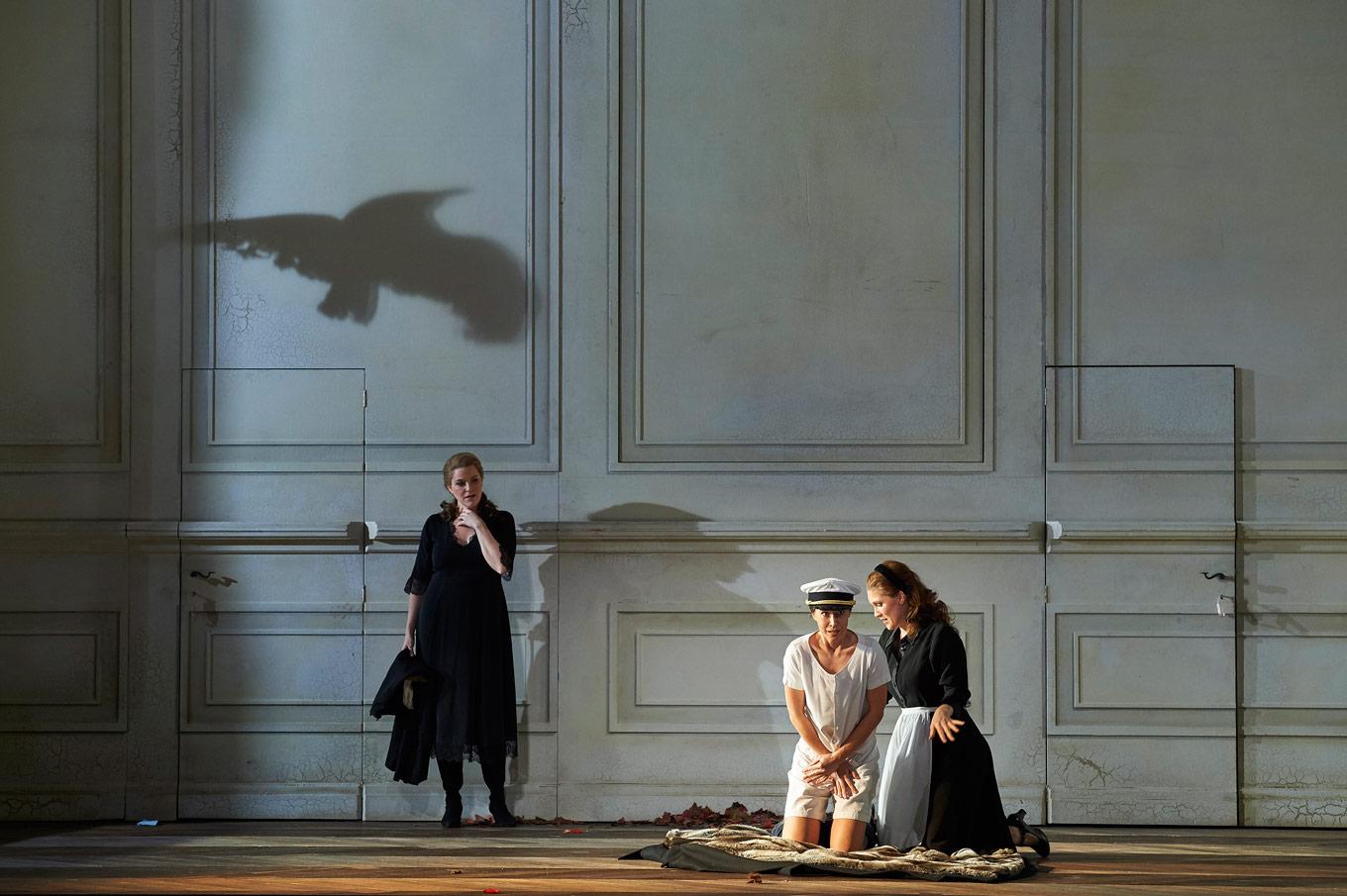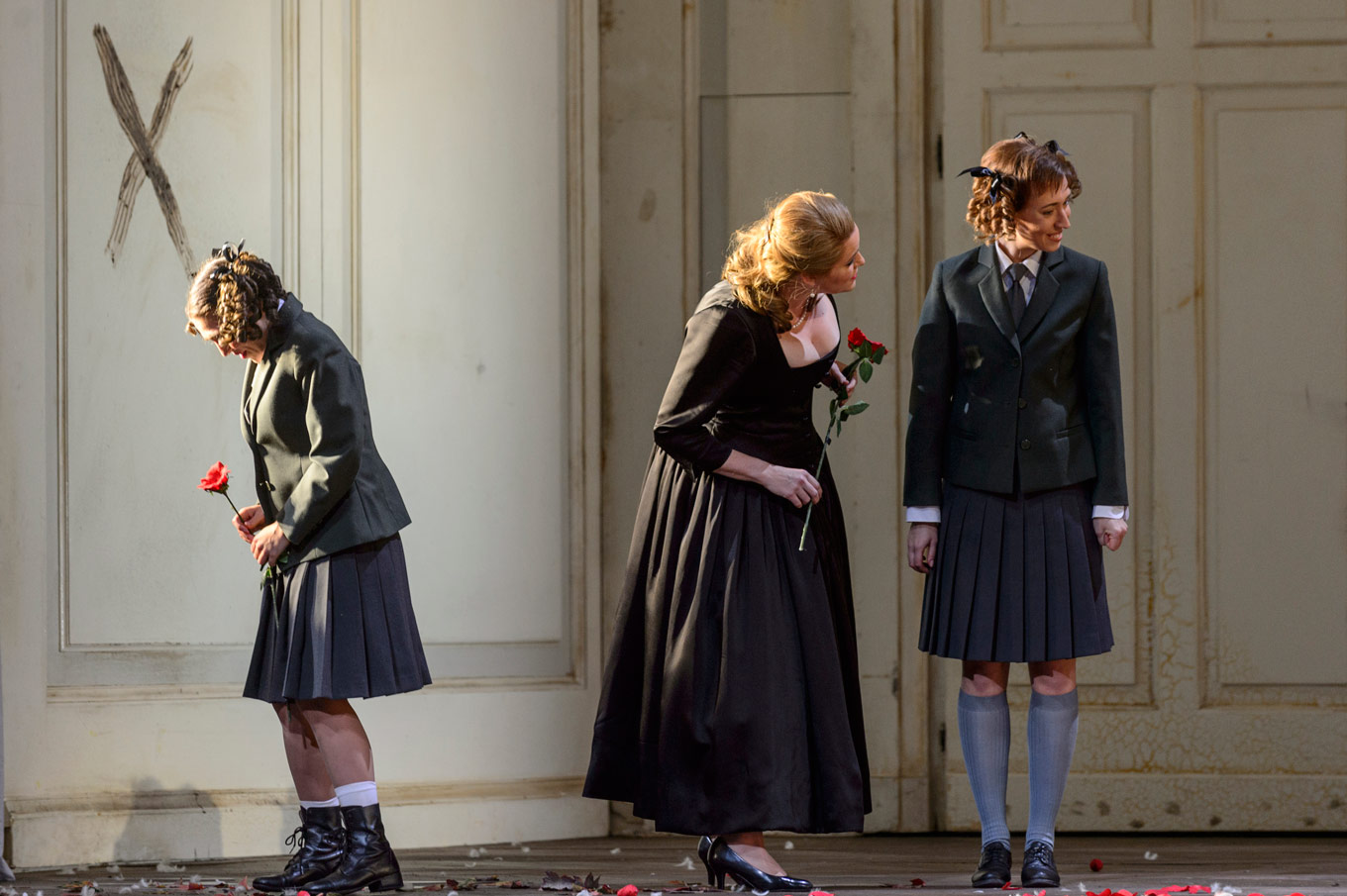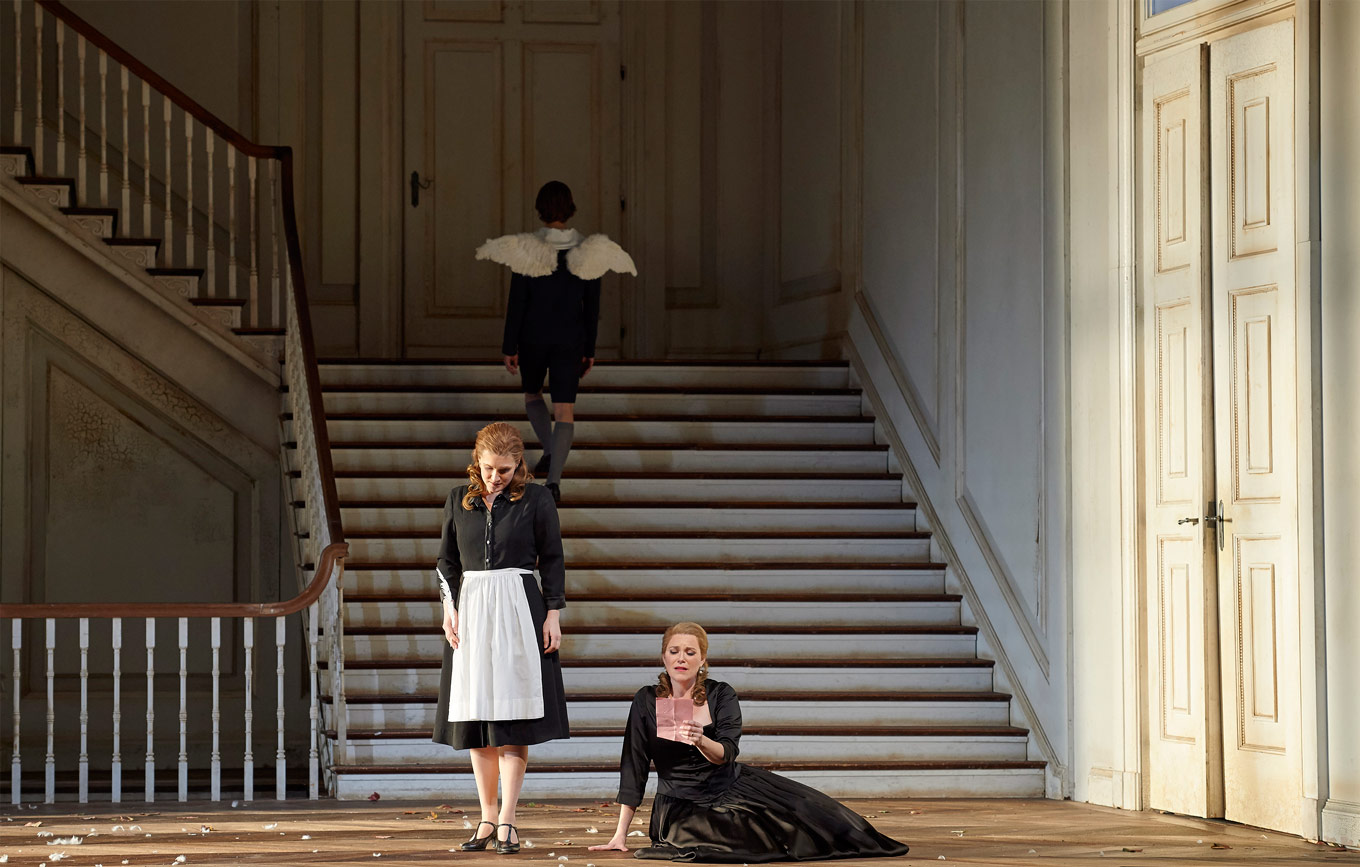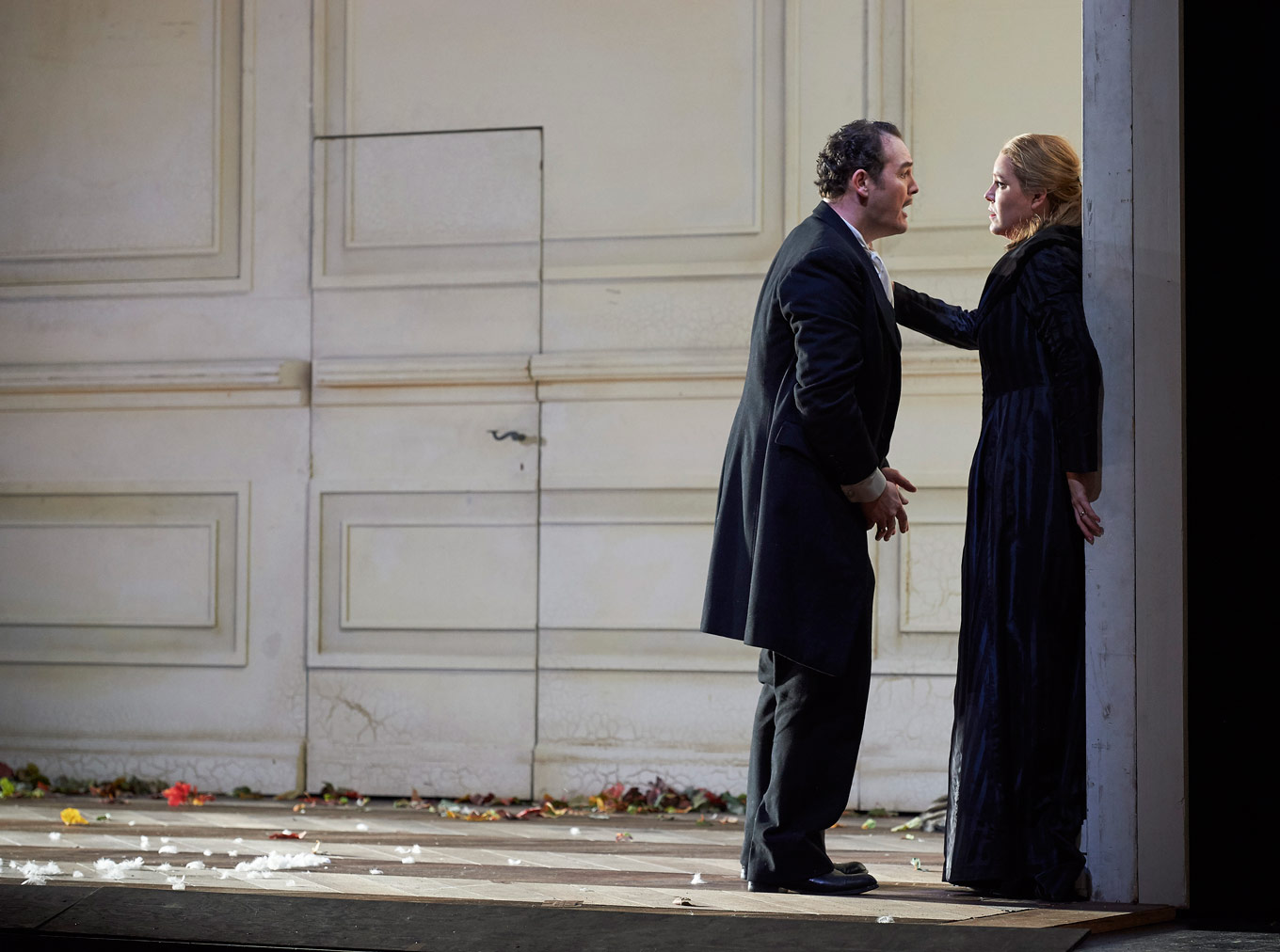
Second opinion: The Marriage of Figaro at the COC
ReviewFirst and foremost, I loved the show.
Now, to the nitty-gritty.
I felt this Marriage of Figaro was really well sung by all parties involved, and Jane Archibald did that thing where she makes me even prouder to be from Nova Scotia. You can hear the sun glinting off the ocean in her voice, even though Susanna’s music is a lot more subdued than what we’re used to from Archibald.
Josef Wagner as Figaro sang very well, but I feel like he may have been led astray at the hands of director Claus Guth. He had a great tone of voice and some solid comic timing especially in his dealings with Susanna, but Guth’s dark approach to the material robbed Figaro of the charisma and charm that landed him in the Almaviva household to begin with. It made him seem too much like the Count and not enough of the Count’s foil.

As the Countess Rosina, once again Erin Wall had me questioning my orientation. Equal parts vulnerable victim and sensual siren. Her stellar vocals on some of the hugest pieces of the standard repertoire shone throughout the Four Seasons Centre. Her voice married so well with Archibald on “Sull’Aria” that you wonder if it’s not the same person singing with themselves.
My voice crush, Russell Braun, as Il Conte was probably the best I’ve seen him on stage. His characterization was probably the one that was most in tune with Guth’s dark vision of this production. He was brooding and looming and yet sensual and charismatic in turns, to the point that you totally understood how these two fiesty Spanish ladies could possibly have fallen for him.
Mezzo Emily Fons as Cherubino was equally matched to Braun and probably brought some of the best singing of the night. “Non so più” was on fire despite some issues in the pit. Her male physicalization was, as the kids say, on point. You completely felt yourself fall for him every time he entered the room.
Sasha Djihanian was a wonderfully acted Barbarina who had amazing chemistry with Fons as Cherubino. I just found her voice a little too mature to be that of a young woman discovering her wiles.

The trio of malefactors played very well, although I did miss a little of Robert Pomakov’s lower end in Bartolo’s surprisingly difficult aria, however, his chemistry with Marcellina was palpable. You really felt as though they were in cahoots with each other for decades. Michael Colvin as Basilio sang well, but often got swallowed up by the other characters he was playing with. Jean-Philippe Fortier-Lazure as Don Curzio was a delightful distraction from the intensity happening on stage. Doug McNaughton as Antonio definitely brought the comic relief that was desperately needed.
Johannes Debus helming the COC Orchestra, had a bit of a tough night, I felt. There were some timing alignments that could have been cleaner and I felt as though it was due to a little insensitivity to what the singers were doing onstage. There was a lot of upstage singing, incredible physicality, and some bizarre staging choices that meant the singers needed to be afforded a little more space to make the ticks line up. That being said, I loved the tempi. I thought they were crisp and bright and I didn’t feel as though the show dragged. My only question is (and I’m not sure if it’s for Debus or Guth) but why did we have Rosina sing “Porgi, amor” in profile facing the wing? I get that she was looking out that glorious window on stage right, but it would have been nice to hear her sing the Countess’s first music into the house.

As for Guth’s treatment of the story, while I was on board with the psychoanalysis of each of the characters, I felt that some of the choices were a little forced. The problem I had with it is that The Marriage of Figaro is essentially a farce. While I loved the added element of the character “Cherubim” (played by Uli Kirsch) representing the chaos that can be wreaked by the basest desires of each of the characters, I feel like we lost a lot of the original Beaumarchais and Da Ponte brilliance. A lot of the sexuality seemed gratuitous, I think in this examination of class and propriety, there has to be a level of decorum and innuendo, or it just looks like you’re trying to “sex up some Mozart”.
Also, if we’re going to list Barbarina in the program as Antonio’s niece, you need a dramaturg to help you realize that in the libretto and score (During the Act IV finale, Antonio literally refers to her as “mia figila” and the surtitles read “my daughter” - in tv/film this would be called a “continuity error”).

Clocking in at 3h35min (to be fair, that includes the intermission), Figaro is a bit of a marathon (it’s no Siegfried, but it’s a long show) and there were some clunky scene changes. It may be the era in which I learned the craft of theatre, but there’s something about dropping the curtain at times that aren’t intermission or leading into the curtain call that just disrupt the flow of the piece. Granted, Christian Schmidt’s set was phenomenal, but sometimes it felt a bit like “the dress wearing you” instead of “you wearing the dress”.
All that aside, I love Nozze, always have; always will. The COC always does good Mozart and you should do yourself a favour and catch it while you can.
For full details and ticket information, follow our box office links below.


Comments